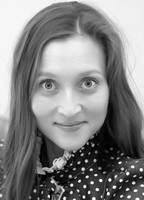Health improvement technologies in physical education of female special health group students
Фотографии:
ˑ:
Teoriya i praktika fizicheskoy kultury №12 2016, pp. 79-81
UDC 796.011.3
Associate Professor, PhD L.M. Bezhentseva
National Research Tomsk State University, Tomsk
e-mail: kapil@yandex.ru
The study was designed to show the benefits of the fitness-yoga-based health improvement technologies in the physical education of female university students qualified for the special health groups (SHG). Experimental work under the study was performed at National Research Tomsk State University in the academic year of 2015-16. Subject to the study were 40 female students qualified for the special health groups split up into Study Group (n=20) and Reference Group (n=20). The RG physical education process was designed as required by the valid curriculum and guidelines; and the SG physical education process was designed by the authors using fitness-yoga-based practices. A questioning survey was performed under the study to rate the SHG students’ motivations for the physical training and healthy lifestyles on the whole. Subject to special tests under the study were the morphological, functional and motor fitness rates of the students. The experimental training method showed its benefits for the bodily conditions of the SHG students and helped optimize the morphological, functional, motor fitness and mental/ emotional fitness rates of the students.
Keywords: fitness yoga, female students, physical development, physical fitness, mental/ emotional status.
References
- Zagrevskaya A.I. Struktura i soderzhanie kineziologicheskoy kompetentnosti studentov (Students' kinesiology competency: structure and content) / A.I. Zagrevskaya // Teoriya i praktika fiz. kultury. – 2014. – № 2. – P. 34.
- Lubysheva L.I. Informatsionnaya kul'tura spetsialista kak faktor vnedreniya novykh tekhnologiy v praktiku fizicheskoy kul'tury i sporta (Information culture specialist as a factor in introduction of innovative technologies into physical education and sport practice) / L.I. Lubysheva, V.K. Bal'sevich // Teoriya i praktika fiz. kultury. – 2001. – № 12. – P. 18-19.
- Osipov A.Y. Problemy fizicheskogo vospitaniya studentov v vysshikh uchebnykh zavedeniyakh. Na primere KrasGMU im. prof. V.F. Voyno-Yasenetskogo (Problems of university physical education: case study of Voyno-Yasenetsky KrasSMU) / A.Y. Osipov, M.V. Tyazhel'nikova // Sport and health activities of educational institution. – Novokuznetsk, 2011. – P. 148-150.
- Shilko V.G. Pedagogicheskie tekhnologii v fizkul'turno-sportivnoy deyatel'nosti studentov (Educational Technologies in Physical Culture and Sports Activity of Students) / V.G. Shil'ko, T.A. Shil'ko, N.L. Guseva // Teoriya i praktika fiz. kultury. – 2014. – № 11. – P. 52–53.
- Shilko V.G. Organizatsiya fizicheskogo vospitaniya studentov v vuzakh Sibirskogo federal'nogo okruga (Organization of physical education in universities of Siberian Federal District) / V.G., Shil'ko, L.V. Kapilevich // Teoriya i praktika fiz. kultury. – 2012. – № 6. – P. 30-33.
- Kapilevich L.V. Physiological mechanisms of motor coordination in athletes in unsupported position / Teoriya i Praktika Fizicheskoy Kultury // 2012, Is. 7, P. 45-48.
Received 03.10.2016 г.




 Журнал "THEORY AND PRACTICE
Журнал "THEORY AND PRACTICE